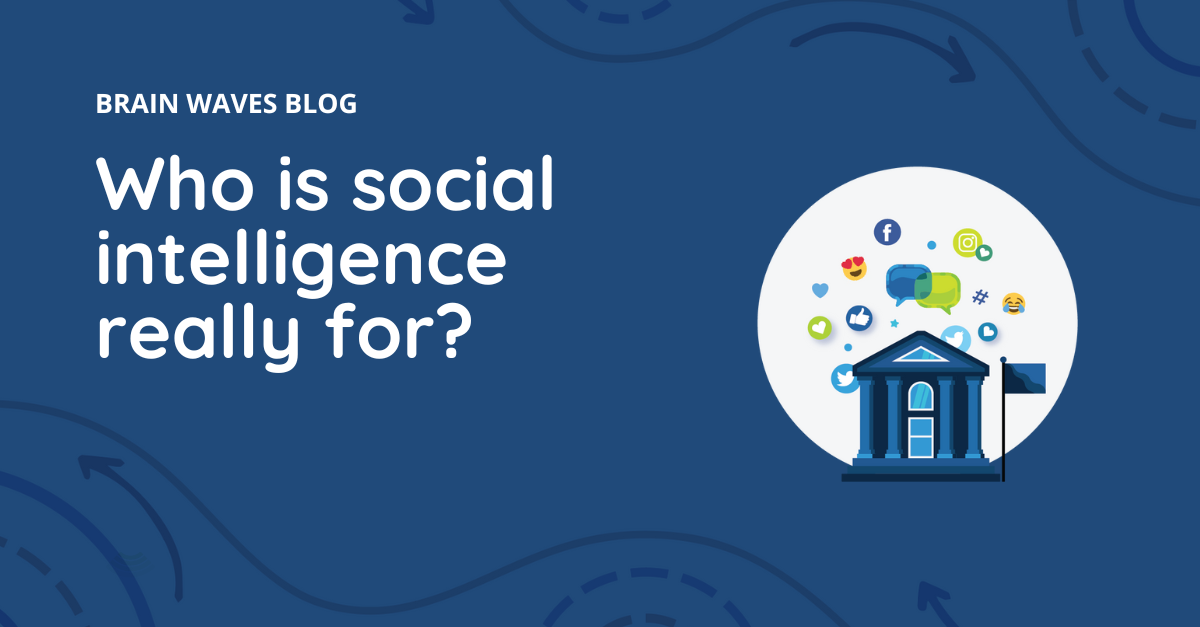Who is social intelligence really for?

Your social media manager isn’t the right person to determine how you use (or don’t use) social listening. And they’re not the only end user of insights—far from it.
To demonstrate, consider how social listening is leveraged to produce social intelligence for the entertainment industry. I’m adding the higher ed equivalent [in brackets].
- To support TV and movie projects [universities and colleges], the marketing or PR department hires an agency to gather social intelligence from consumers and fans [students, alumni, and other stakeholders]. Insights are delivered to the show runners and producers [president and cabinet].
- While projects are in development, insights inform scripts and casting choices [fundraising strategy, academic program development].
- As they near release, audience reaction and speculation will guide teaser reels and marketing plans [enrollment marketing].
- Insights from the first day and week of the premiere guide ongoing investment [institutional strategy], affiliated merchandising [brand activation], and development of a sequel or next season [strategic initiatives].
- Ongoing insights inform decisions about franchise development [brand strategy, M&A, campus planning], product placement deals [strategic donor identification], advertising/sponsorship strategy [community & employer partnerships], and development of a sequel or next season [strategic initiatives].
While all this is happening, the social media manager posts key messages, engages fans, amplifies audience commentary, and guides healthy discourse within the fandom. In a well-integrated organization, they’ll use social intelligence insights to build personas, adjust channel strategy, and identify champions. Just like in higher ed.
Colleges and universities put too much work on their social media managers’ plates. In an increasingly digital world, you can’t delegate everything with the word social in it to them. If you wouldn’t ask your social media manager to design your enrollment marketing strategy, measure the health of your university brand, or create an alumni engagement plan, you shouldn’t ask them to be solely responsible for social listening. While they may enthusiastically participate, a senior leader should determine how social intelligence is used (alongside other inputs) to guide data-informed decisions and strategies.
This is why I believe that in an increasingly uncertain and fast-paced world, social intelligence is critical for presidents and boards.

